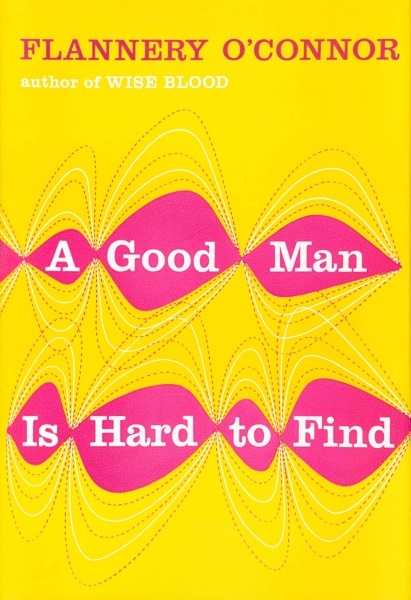O'Connor: ‘A Good Man is Hard to Find’
Flannery O’Connor’s first published collection of short stories, A Good Man Is Hard to Find, arguably established her as a Southern, American, and Catholic woman writer. O’Connor’s role in the Catholic Intellectual Tradition is especially noteworthy.
Recently assessing the desert of U.S. Catholic literary and artistic engagement and production in the late twentieth and early twenty-first centuries, poet and critic Dana Gioia highlights by comparison the fertile period delineated by the end of World War II and the 1964 death of O’Connor.
While O’Connor’s first published book, the novel Wise Blood (1952), met initially mixed reviews, A Good Man Is Hard to Find sold comparatively well and met critical praise, including Evelyn Waugh’s telling exclamation, “If these stories are in fact the work of a young lady, they are indeed remarkable.” But even the best reviews left O’Connor troubled by the apparent misunderstanding of her work. In a letter to Betty Hester in July 1955, O’Connor says,
“I am mighty tired of reading reviews that call A Good Man brutal and sarcastic. The stories are hard, but they are hard because there is nothing harder or less sentimental than Christian realism. … When I see these stories described as horror stories I am always amused because the reviewer always has hold of the wrong horror.”
Over time, O’Connor would discover that all of her stories involved, in her own words, “the action of grace in territory held largely by the devil.”
Published together in 1955 after appearing in journals such as Shenandoah, Kenyon Review, Sewanee Review, and Harper’s Bazaar, O’Connor’s stories are both topical renderings of life in the American South and universal parables about characters confronting the limits of their own worldviews and experiencing ironic and mysterious challenges to their obstinacy. O’Connor’s story lines are captivating in themselves: a grandmother’s comic interventions during a family’s summer road trip lead to an encounter with a serial killer; a boy and his family discover what baptism by immersion really means; a surly girl with a wooden leg, back home from college with a degree in philosophy, meets a young down-home Bible salesman and thinks she’ll have her way with him; a post-World War II Polish immigrant family and a priest who loves peacocks turn a farm community’s life upside down.
In these stories, O’Connor reveals her fictional tendency toward extremes, having understood that she was a Catholic believer writing for an audience made up largely of unbelievers: “To the hard of hearing you shout, and for the almost-blind you draw large and startling figures,” she would say of her aesthetic approach. The short stories in this collection continue to find their way into many anthologies today and have, since O’Connor’s death, been gathered into The Complete Stories (1971) and The Library of America edition of O’Connor’s Collected Works (1988).
Before her death at 39 from complications of lupus, O’Connor would publish one other novel, The Violent Bear It Away (1960). Her second collection of short stories, Everything that Rises Must Converge, appeared shortly after her death (1964). Also published posthumously are Of Mystery and Manners (1969), a collection of essays; The Habit of Being (1979), a collection of her letters; and A Prayer Journal (2013), from O’Connor’s days studying at the University of Iowa.
O’Connor’s life and writing remain the subject of dozens of book studies and hundreds of professional and popular articles from a variety of critical perspectives.
—Brother Tom Wendorf, S.M., PhD, national vocation director, Marianist Province of the United States
Excerpt from Flannery O'Connor's "A Good Man is Hard to Find" read by Sheila Hassell Hughes, Professor. University of Dayton. Department of English

